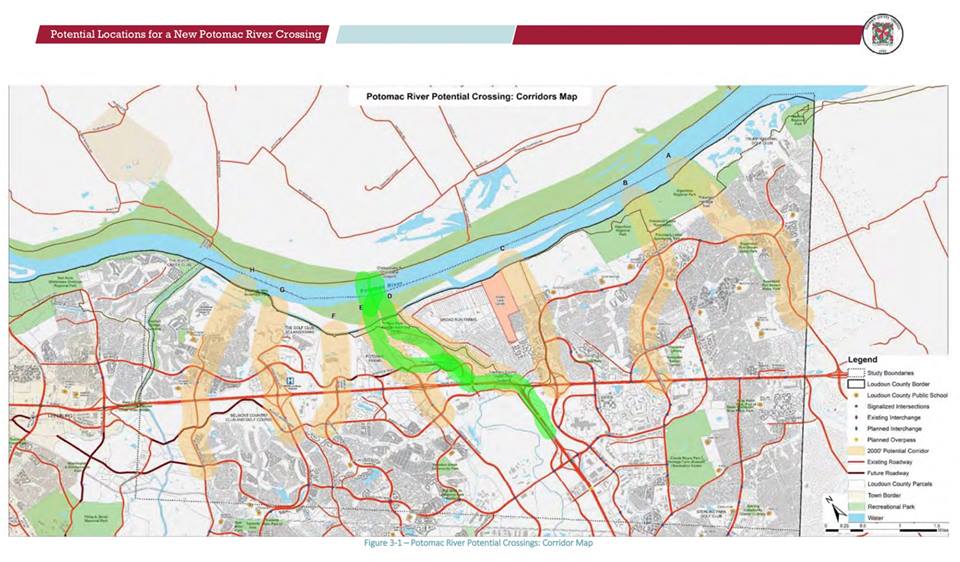Based on the results of the November 2017 study, a new Potomac River bridge would have “low” benefits to road congestion, incidents and safety, bottlenecks and reliable access to intercity hubs when compared to the current 2040 Constrained Long-Range Plan (CLRP). A new Potomac River bridge would have neutral impacts to transit crowding, inadequate bus services, and access to bike/pedestrian options, development around Metrorail, housing and job location, Metrorail repair needs and pedestrian and bicyclist safety when compared to the current 2040 CLRP. A new Potomac River bridge would have negative impacts to roadway repair needs, environmental
quality and open space development when compared to the current 2040 CLRP.
MCA joins with our partners at Coalition for Smarter Growth and Piedmont Environmental Council, collectively representing our hundreds of thousands of supporters on both sides of the River in calling for Loudoun County to drop this campaign and instead focus on proven solutions that will actually get traffic moving - among them, fixing the American Legion Bridge and better planning land use patterns. As proven for the 5th time in 20 years, this project does not offer traffic relief and would do great harm.
The Maryland side of the map above makes it looks like the Ag Reserve has no obstacles to these proposed crossing points. MCA has made the case time and again - farms are not holding ground for future development, they are small businesses that supply our basic needs for food and fiber. “The bridge would directly impact the drinking water intakes for most of the region’s population; potentially impair the Piedmont groundwater aquifer, which serves as the sole source of drinking water in rural Montgomery County; create development pressure in the nationally recognized Agricultural Reserve; and increase vehicle miles traveled,” says Taylor.









